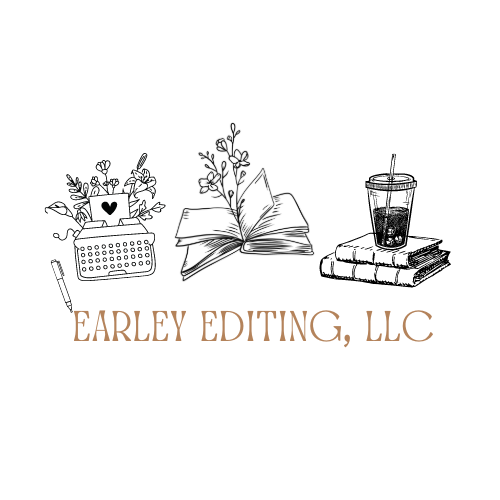How to Ensure You Hire a Professional Editor and Not a Scam Editor
Ensuring you're hiring a professional editor and avoiding scams requires some caution and due diligence from an author. You don’t want to invest in something that isn’t going to benefit you or your book. Hiring an editor is about improving upon your story, so let’s go over a few things to consider to help verify an editor's professionalism:
Check for Recommendations and Reviews: Seek recommendations from trusted sources, such as fellow authors, writing communities, or even the editor’s Facebook Page to see what other authors have written. See which editors are being used by authors within your circle, and ask about the author’s experience. Look for online reviews or testimonials from past clients to get a sense of the editor's reputation and quality of work.
Review Editor's Credentials and Experience: Research the editor's background, qualifications, and experience. Look for information about their education, training, or certifications in editing. Verify their claims by checking their website, and any and all professional platforms where they showcase their credentials.
Assess Editing Portfolio and Samples: Request a sample edit from the editor to get a sense of what it’s like to work with them and how they would work on your manuscript. Review their editing style, attention to detail, and overall quality of work to see if they are a good fit for you. A professional editor should have a portfolio to demonstrate their competence and expertise. However, if an editor is a newbie, they are likely building out their portfolio. If an editor has been freelancing for some time, they should have a portfolio.
Verify Professional Memberships: Some professional editors may be affiliated with industry organizations or guilds. Check if the editor is a member of reputable editing associations, such as the Editorial Freelancers Association (EFA). Membership in such organizations can indicate a commitment to professional standards.
Conduct an Internet Search: Perform a general internet search on the editor's name and the name of their editing company. Look for any red flags or negative feedback that might indicate a scam or unprofessional behavior. Be cautious if you find multiple complaints or warnings from authors who have had negative experiences.
Communication and Professionalism: Engage in communication with the editor before finalizing any type of agreement. Pay attention to their responsiveness, professionalism, and willingness to answer your questions. Be sure to take note if their email communications are full of errors. Additionally, a professional editor should be transparent about their process, pricing, and terms.
Request a Contract or Agreement: A professional editor should provide a clear contract or agreement that outlines the scope of work, deadlines, payment terms, and any other relevant details. A contract with an editor should protect you (the writer), the work, and hold the editor accountable. Read the contract carefully and ensure you understand and agree to the terms before signing or proceeding further.
Trust Your Gut: If something feels off or if you have concerns about an editor's professionalism or practices, trust your instincts. It's better to be cautious and explore other options than risk working with an untrustworthy or unqualified editor.
Remember, hiring a professional editor is an investment in your writing journey, so take the time to research and choose someone who aligns with your needs, voice, and goals. Conducting thorough research, checking credentials and references, and maintaining clear communication can help you identify genuine professionals and avoid scams.
